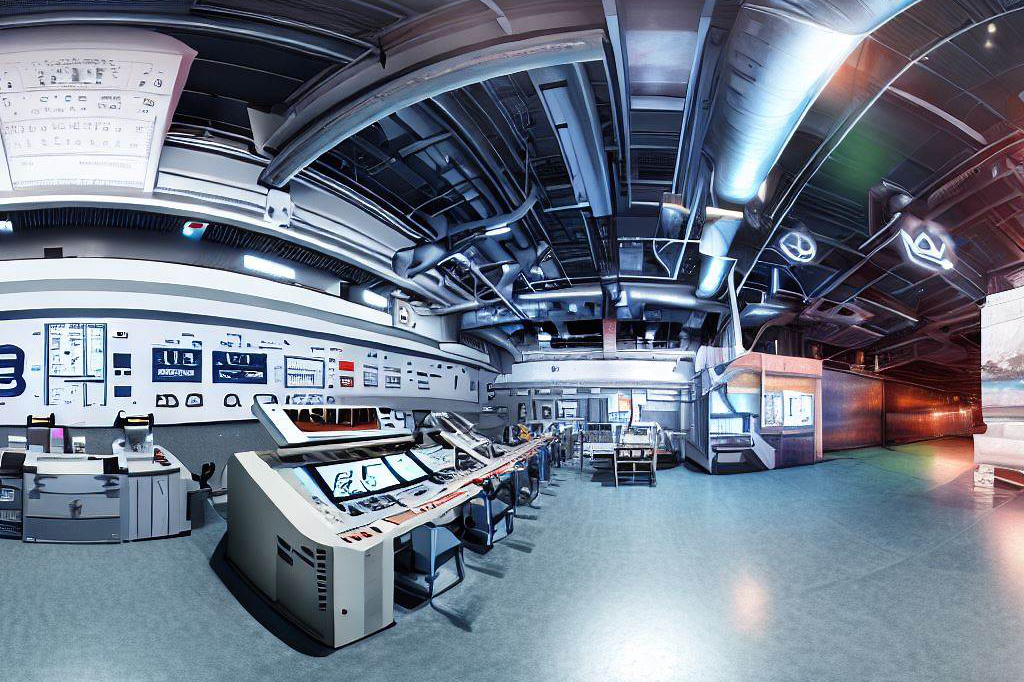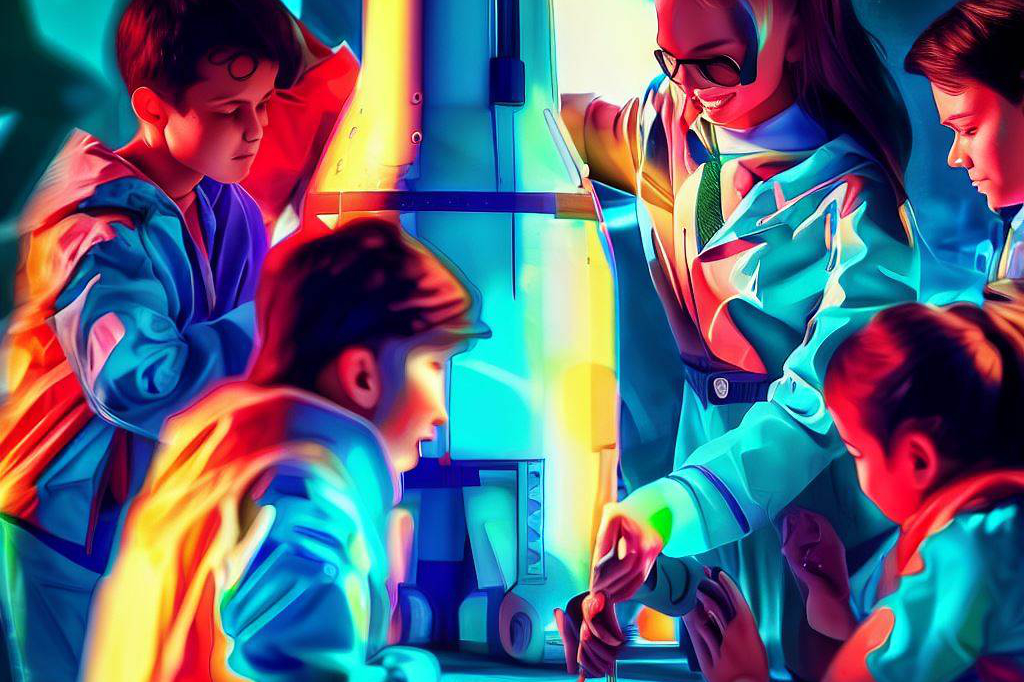Space exploration has always captivated the imagination of humanity, pushing the boundaries of what is possible and inspiring generations. As we look beyond our terrestrial confines and into the vastness of the cosmos, space camps have emerged as a vital platform for nurturing young minds with a passion for space education.
These camps provide an immersive and experiential learning environment, fostering curiosity, knowledge acquisition, and skill development in all things related to outer space. In this article, we will explore the definition of space camps and delve into the significance they hold in shaping future leaders in space science and exploration.
Definition of Space Camps
Space camps can be defined as specialized educational institutions or programs that offer hands-on experiences and training related to various aspects of
- space science,
- astronautics,
- aerospace engineering,
- astrophysics,
and more.
Operating in both residential and day camp formats depending on their duration and scope, these programs are designed to provide participants with a comprehensive understanding of space-related concepts through interactive simulations, workshops, lectures by experts in the field, and exposure to cutting-edge technology.
At these camps – often located near renowned scientific institutions or major aerospace centers – aspiring astronauts-in-training engage in activities mimicking those experienced by real astronauts. From simulated zero gravity environments to mission control operations simulations, participants are provided with an unparalleled opportunity to learn firsthand what it takes to venture beyond Earth’s atmosphere.
Importance of Space Education

The importance of space education cannot be overstated in our quest for scientific advancement.
Space exploration not only expands human knowledge but also drives technological innovation across various fields such as
- medicine,
- communication systems development,
- sustainable energy solutions,
- environmental monitoring systems design
– just to name a few.
By engaging young minds through space education initiatives like space camps at an early stage in their academic journey, we are fostering a future generation of researchers, engineers, and innovators who will push the boundaries of human knowledge, drive technological advancements further, and potentially pave the way for future space exploration.
Furthermore, space education plays a critical role in promoting an interdisciplinary approach to learning. It integrates science, technology, engineering, and mathematics (STEM) concepts to provide students with a holistic understanding of the universe.
Through hands-on activities and collaborative projects within space camps, participants develop crucial skills such as critical thinking, problem-solving abilities, and teamwork capabilities – all essential competencies for success not only in the field of space but in various other professional domains as well. Moreover, space education fosters a sense of wonderment and curiosity about our universe.
It inspires individuals to question the world around them and seek answers beyond what is conventionally known. By nurturing this innate curiosity through programs like space camps, we are creating an environment conducive to imagination and creativity – vital qualities that have driven some of humanity’s most groundbreaking discoveries throughout history.
Overview of Space Camps

The History and Evolution of Space Camps
Space camps have a rich history that can be traced back to the 1980s, when the concept of immersive space education programs began to gain momentum.
The United States Space Camp, established in 1982 at the U.S. Space & Rocket Center in Huntsville, Alabama, holds the distinction of being the first-ever space camp.
Inspired by a desire to spark interest in space exploration among young minds, this camp aimed to provide participants with hands-on experiences similar to those encountered by real astronauts. Over time, these initial space camps gave rise to a wave of innovation and expansion within the field of space education.
Today, numerous institutions across the globe offer their own versions of space camps, each with its own unique approach and curriculum. These camps have evolved to incorporate not only astronaut training simulations but also a wide range of activities aimed at fostering skills related to science, technology, engineering, and mathematics (STEM).
Different Types of Space Camps
Space camps cater to diverse preferences and needs by offering different types of programs suited for various age groups and durations. Residential space camps provide participants with an immersive experience by offering overnight accommodations on-site. This type allows attendees to fully immerse themselves in the environment while forming lasting connections with fellow campers.
On the other hand, day camps are designed for those who prefer a shortened version or cannot attend overnight stays. These programs typically span several days or weeks, during which participants engage in intensive activities centered on space education.
Furthermore, some specialized camps focus on specific aspects within space exploration, such as robotics or rocketry workshops. These targeted programs allow attendees to delve deeper into their areas of interest while receiving specialized training from experts in these fields.
Locations and Facilities Offered by Space Camps
Space camps are located in various parts of the world, providing aspiring space enthusiasts with opportunities for education and exploration close to home. In addition to the iconic U.S. Space & Rocket Center in Alabama, there are space camps in countries like Canada, Australia, Germany, and Japan.
These camps boast state-of-the-art facilities that simulate real-life astronaut training scenarios. Participants get a taste of what it’s like to live and work in space through simulations of zero-gravity environments and mission control operations.
They have access to mock astronaut training equipment such as simulators for spacecraft launches and landings, spacesuit replicas, and centrifuges used for gravity force simulations. By combining cutting-edge technology with educational prowess, these facilities create an environment that sparks curiosity and fuels the passion for space exploration among camp attendees.
Benefits of Space Camps in Space Education

Experiential Learning Opportunities
Space camps offer a unique and immersive learning experience that goes beyond traditional classroom settings. One of the key benefits is the opportunity for participants to engage in simulated astronaut training activities.
Through these simulations, aspiring space enthusiasts can get a taste of what it feels like to train as an astronaut. They may experience zero gravity conditions through parabolic flights, where they float weightlessly inside an aircraft during specific maneuvers designed to mimic the feeling of being in space.
This hands-on experience provides a truly memorable and impactful learning experience, fostering a deep understanding of the challenges and excitement associated with space exploration. Moreover, space camps offer access to state-of-the-art space equipment and technology, allowing participants to gain practical knowledge by actively engaging with real-life space tools.
From operating robotic arms used in satellite deployment exercises to maneuvering remote-controlled rovers on simulated lunar surfaces, camp attendees have the chance to apply their theoretical knowledge in a practical setting. By actively participating in these hands-on activities, they develop important technical skills while also building the confidence and resilience necessary for future endeavors.
STEM Education Enhancement
Space camps excel at integrating science, technology, engineering, and mathematics (STEM) concepts into their camp activities. By designing programs that combine theoretical knowledge with practical applications, they provide an ideal environment for enhancing STEM education. Participants are encouraged to brainstorm solutions to complex problems related to space exploration while collaborating with their peers.
These activities foster critical thinking skills as well as problem-solving abilities essential for success in scientific disciplines. Furthermore, through interactive workshops and projects focused on rocketry or spacecraft design, camp attendees gain insight into engineering principles and practice hands-on application of engineering concepts.
They learn about propulsion systems, aerodynamics, and materials science—the very foundations upon which spacecraft are built—while engaging actively in designing prototypes or constructing functioning rockets. Such experiences ignite a passion for engineering and empower young minds to explore the limitless possibilities of technological innovation.
Exposure to Space Science and Exploration
Space camps go beyond providing hands-on activities by offering lectures and presentations from experts in the field of space science and exploration. Renowned scientists, astronauts, and engineers often visit these camps to share their knowledge, experiences, and insights with participants.
Through these interactions, camp attendees gain a deeper understanding of the intricacies of space science, astronomy, astrophysics, and planetary science. Additionally, space camps provide immersive experiences related to various aspects of space exploration.
Participants may have the opportunity to stargaze through powerful telescopes or engage in celestial observations to learn about different cosmic phenomena firsthand. These experiences foster a sense of wonder about the universe while inspiring campers to pursue careers or further education in fields related to space science.
Specific Programs Offered by Space Camps

A: Astronaut Training Simulations
One of the most exciting programs offered by space camps are astronaut training simulations. These simulations aim to recreate the challenges faced by astronauts during their training process.
Parabolic flights simulate zero gravity conditions by employing specialized aircraft that perform a series of maneuvers that result in brief periods of weightlessness for passengers on board. Participants experience firsthand how their bodies adjust in microgravity environments while performing tasks similar to those required during real-life astronaut missions.
Another integral component of astronaut training simulations involves mission control operations. Participants assume roles within a simulated mission control room where they manage critical spacecraft operations.
They coordinate with astronauts-in-training during simulated missions, ensuring smooth communication channels while monitoring vital systems’ performance.
By engaging in these simulations, camp attendees develop teamwork skills and an understanding of the meticulous planning required for successful space missions.
B: Rocketry Workshops
Rocketry workshops are another popular offering at space camps, captivating the imagination of young enthusiasts eager to explore the realm of space engineering. In these workshops, participants learn about rocket propulsion, design principles, and construction techniques.
They get hands-on experience designing and building their own rockets under the guidance of experienced instructors. Through trial and error, participants gain practical insights into aerodynamics, stability analysis, and payload optimization.
These workshops often culminate in students launching their self-designed rockets to witness their creations soar into the sky. The satisfaction derived from witnessing a successful launch encourages a deeper appreciation for science and engineering while inspiring camp attendees to pursue further studies or careers in aerospace-related fields.
Final Thoughts

Space camps play an irreplaceable role in space education by providing experiential learning opportunities that go beyond traditional classroom settings. Through simulated astronaut training activities and hands-on experiences with space equipment and technology, camp attendees develop a deep understanding of the challenges and excitement associated with space exploration.
By integrating STEM concepts into camp activities, these programs enhance critical thinking skills, problem-solving abilities while fostering a passion for scientific disciplines. Moreover, through exposure to lectures by experts in the field and immersive experiences related to astronomy and planetary science, participants gain valuable insights into various aspects of space science and exploration.
This exposure broadens their horizons while igniting curiosity about the universe around them. Space camps serve as catalysts for inspiration where young minds can explore their fascination with space while gaining invaluable knowledge through engaging activities.
By nurturing scientific curiosity and encouraging interdisciplinary approaches to problem-solving, these camps set participants on a trajectory towards future success in various STEM fields related to space exploration. Ultimately, they contribute toward shaping a generation that will boldly venture into new frontiers beyond our planet’s boundaries.

C M, a seasoned editor, journalist, and consultant, is deeply fascinated by the convergence of technology, space, and the future of humanity.
With a particular interest in transhumanity, futurology, and the philosophical and ethical dimensions of these domains, C M serves as the lead contributor to SpaceSpotlight and TranscendSphere.
When not penning insightful articles on these rapidly evolving fields, C M indulges in their love for podcasts and books, proudly embracing their status as a ‘Happy Nerd Extraordinaire!’



